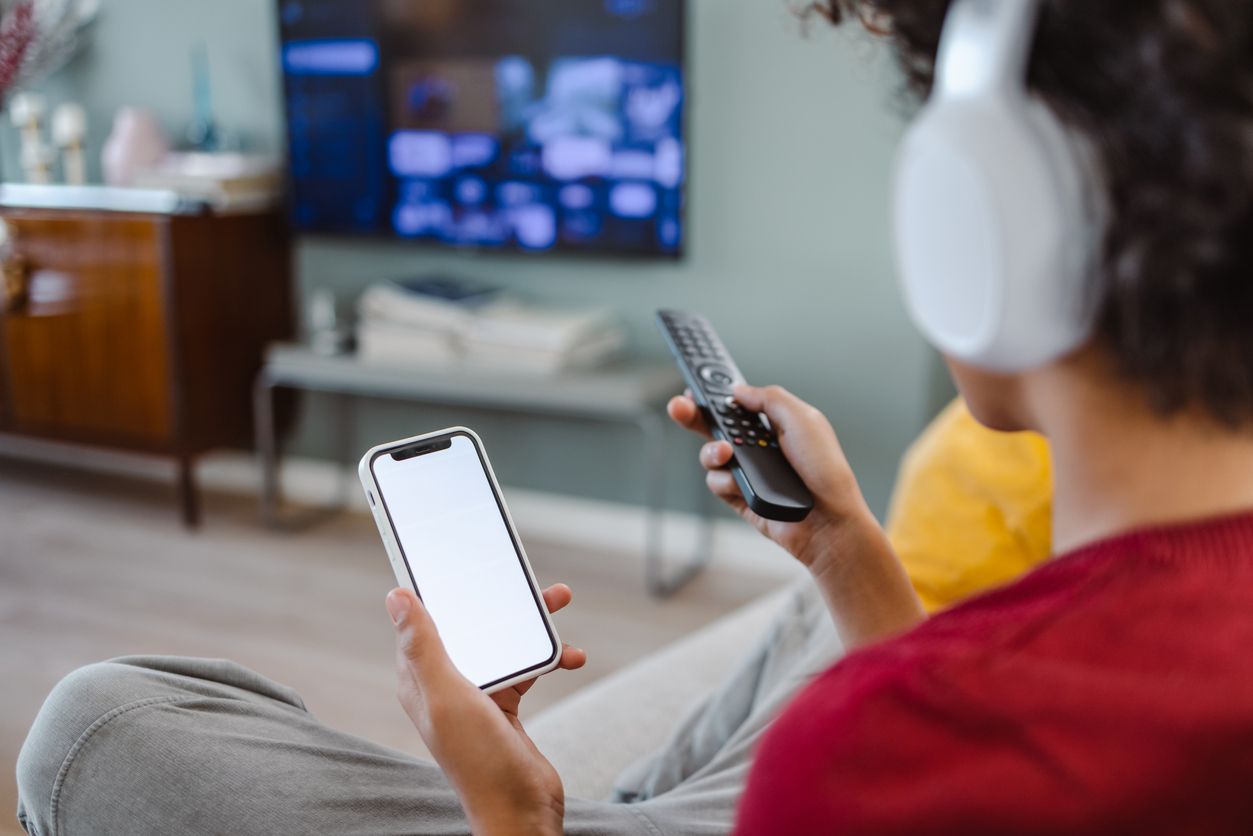- Increased Daily Usage: According to a study by eMarketer in 2022, US adults spent an average of 3 hours and 54 minutes on their mobile devices daily. This marks a steady increase from the previous years, indicating that mobile engagement is continuously on the rise. A study from the tech consulting firm, Deloitte, revealed that American users, on average, check their phones 52 times a day. This includes not just social media checks but also email, messaging, and other online activities.
- The Rise of Multiscreening
- Multiscreening, or using multiple devices simultaneously, has become commonplace. A Nielsen report highlighted:
- Over 70% of users globally say they use their smartphones while watching television. This multiscreen behavior involves checking social media, looking up information related to the show or movie, or engaging in online shopping.
- Tablets and Computers: Still a Major Player
- While mobile phones dominate personal internet access, tablets and computers are far from obsolete.
- A Pew Research study found that 73% of adults in the US still primarily used their computers to go online in 2022. This underscores the value of a bigger screen, especially for work-related tasks, research, or long-form content consumption.
- Emerging Internet Access Points: Smart Devices
- With the growth of the Internet of Things (IoT), many household devices now offer internet connectivity.
- Devices such as smart refrigerators, home assistants like Amazon's Alexa or Google's Nest, and even smartwatches are increasingly being used to access online services, from streaming music to checking the weather or setting reminders.
- The Impact on Mental Health and Productivity
- With increased digital engagement, there's also a growing discussion on its impact. A study from Stanford University indicated that constant online engagement, especially late into the night, has a correlation with decreased sleep quality. On the flip side, a report by McKinsey & Company pointed out that the internet, when used productively, could enhance work efficiency, promote learning, and foster community building.
STUDY: HOW OFTEN DO WE REACH FOR OUR DEVICE?

- In our interconnected world, it's no surprise that many of us spend a substantial amount of time online. With smartphones becoming increasingly affordable and integral to our daily lives, and the proliferation of tablets, laptops, and smart devices, the internet has become more accessible than ever. But just how often are we reaching for our devices? Let’s dive into some recent studies that shed light on our digital habits.

STUDY: How Often Do We Reach For Our Device?

- Our relationship with the internet is complex and ever-evolving. These recent studies underscore the increasing centrality of digital devices in our lives. While the sheer amount of time we spend online can be daunting, it's essential to remember the myriad of ways the internet enriches our lives, from instant communication to an unfathomable wealth of information. However, striking a balance and ensuring mindful consumption will remain crucial as we navigate our digital future.
